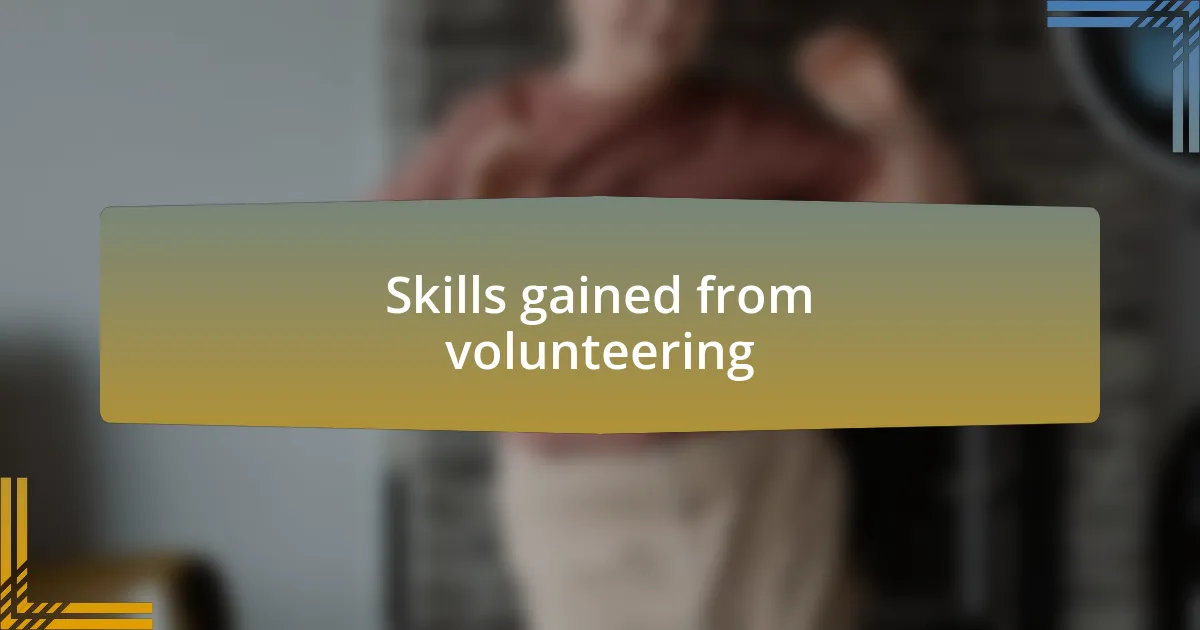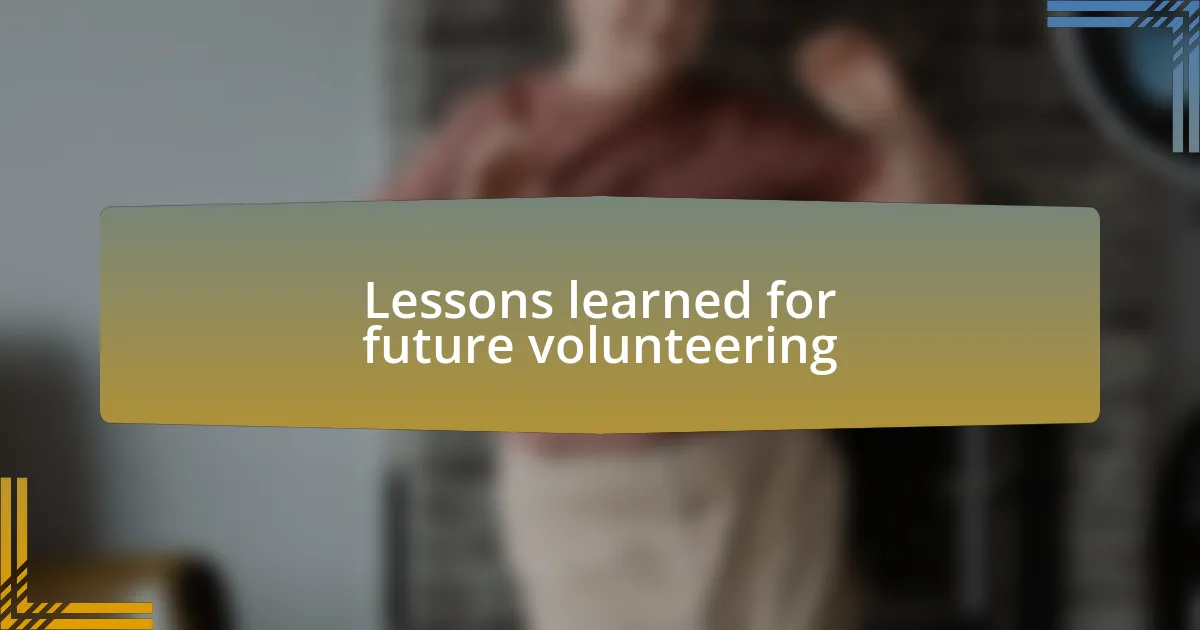Key takeaways:
- Luxury retirement homes enhance senior living through personalized care, vibrant community, and gourmet culinary experiences.
- Volunteering develops valuable skills, including organization, interpersonal communication, and problem-solving in real-world scenarios.
- Flexibility and adaptability are crucial in volunteering, leading to unexpected positive outcomes and successful experiences.
- Active listening fosters deeper connections and compassion, enriching both personal interactions and community engagement.

Understanding luxury retirement homes
Luxury retirement homes offer a unique blend of comfort and elegance, elevating what it means to age gracefully. I recall visiting a community with stunning grounds and thoughtfully designed spaces that truly felt like a resort rather than a conventional living option. When I stepped into that beautifully appointed common area, I couldn’t help but wonder, “How can a place so vibrant support an enriching lifestyle for seniors?”
What sets these homes apart is the emphasis on personalized care that caters to individual needs. Imagine knowing that each day, you could choose activities that resonate with your passions or join new social circles. I once met a resident who found joy in painting; the art classes offered at her retirement home had not only nurtured her talent but had also led to deep friendships that transformed her experience from solitary to vibrant.
The luxury aspect isn’t just about aesthetics; it’s about creating a fulfilling lifestyle. I vividly remember engaging in a conversation with a resident who expressed how the culinary offerings, prepared by gourmet chefs, made mealtime a highlight of her day. Isn’t it incredible to think that such attention to detail can enhance daily living in profound ways?

Skills gained from volunteering
Volunteering has taught me a variety of invaluable skills that often extend beyond the tasks at hand. For instance, while helping at a local food bank, I honed my organizational skills by managing inventory and coordinating schedules. How rewarding it felt to see an entire community benefitting from the efficient systems we implemented together!
Moreover, I’ve built strong interpersonal skills through volunteering. One memorable experience occurred when I assisted in organizing activities for seniors, where I learned to lead with empathy and adjust my communication style to connect with individuals from diverse backgrounds. This adaptability not only enriched my interactions but also fostered a sense of trust, which I find crucial in any collaborative environment.
Additionally, problem-solving emerged as a vital skill during my time volunteering at events. I recall a day when our vendor didn’t show up, and I quickly devised an alternative plan to keep everyone engaged. That experience taught me how to think on my feet and empower others to contribute creatively to overcome unexpected challenges. Isn’t it fascinating how these real-world scenarios shape our capabilities and give us a richer perspective on teamwork?

Lessons learned for future volunteering
When reflecting on my volunteering experiences, I’ve come to realize the importance of flexibility. There was a time I was scheduled to lead a workshop, but due to unforeseen circumstances, I had to pivot and create a new lesson plan on the fly. This taught me that being open to change not only relieves stress but can also lead to unexpected outcomes that are just as valuable. How often do we cling to our original plans when adapting can lead to even greater success?
I also learned to appreciate the power of networking. During one volunteering stint at a community center, I met individuals who inspired me in ways I hadn’t anticipated. Sharing their stories and learning from their experiences not only expanded my own perspective but also created lasting connections. Isn’t it incredible how volunteering can open doors to new friendships and professional opportunities that enrich our lives?
Listening actively became another crucial lesson. I remember volunteering at a shelter and noticing how many people simply wanted to share their stories. By giving them my full attention, I discovered profound insights about resilience and hope. This experience reminded me that true compassion often comes from simply being present and receptive. How might our interactions change if we all prioritized listening over speaking?